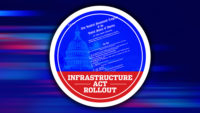
Money in New Jersey's Transportation Trust Fund that’s earmarked for rebuilding rails, bridges and signaling should not be diverted to repair operational deficiencies in the state transit agency.
The crisis at NJ Transit is not Gov. Phil Murphy’s creation, but it is now his responsibility to fix.
In what could well become the defining policy issue of his administration, the governor now owns the outcome of the audit he commissioned and recently released.
There is no doubt that Gov. Murphy’s predecessors dramatically underfunded the rail system. The problems were evident as early as in the aftermath of Superstorm Sandy, but now it is safe to say the system has moved from beleaguered to failing. It’s become a political problem and New Jersey residents are growing increasingly angry.
Once known as a premier transportation agency, NJ Transit has seen its reputation crater, as state funding has not kept pace with increased ridership.
But this is more than just a funding issue. There’s no way to say this other than bluntly—the agency has been severely mismanaged.
Wrong Direction
It’s not just that trains are late or canceled. It’s far more serious as lives are now literally at stake. There was the fatal 2016 Hoboken crash, and the agency for years chose to essentially ignore the need to install Positive Train Control (PTC) safety equipment in advance of an end-of-year federal deadline.
Earlier this year, Amtrak made clear to NJ Transit that missing this deadline would mean limited ability to use New York’s Penn Station. To Gov. Murphy’s credit, instead of just blaming predecessors, he pushed hard to bring NJ Transit into compliance.
But that’s nowhere near enough.
The audit ordered by the governor faults the annual raiding of funding that was supposed to go to NJ Transit capital improvements, and went instead to its operating budget. Unfortunately, this practice has continued as Gov. Murphy and lawmakers did the same thing in this year’s budget.
Even though NJ Transit’s capital budget was increased earlier this year, the audit stated that the agency’s long-term needs are “substantially more than what is currently being invested.” It also concluded the total capital value of the agency’s physical assets has declined by $1.5 billion since 2010 due to the lack of adequate investment.
Perhaps by coincidence, left out of the detailed examination is a clear path forward to address NJ Transit’s funding woes.
The audit pointed to funding approaches other states use to match reliance on rider fares, which was fine as far as it went. But, the report stopped short of endorsing any one of these approaches. The governor also hasn’t committed to any specific financial remedies, leaving that vital issue unresolved.
Peter Can't Pay Paul
So, as the administration deals with what we can call an unpleasant-tasting sandwich, it must not rob Peter to pay Paul.
Hiring talented rail operators at every level of the operation is important. Of course, talent costs and New Jersey has woefully underpaid its NJ Transit staff, making New York’s MTA a better-paying alternative for high-quality workers. The administration must find the funding to improve maintenance and traveling quality as well.
But one place the funding cannot come from is the Transportation Trust Fund. The previous governor faced his own foul-tasting sandwich when the TTF dried up because preceding administrations chose not to renew it. This became his problem and he solved it.
That’s what Gov. Murphy must do here—but simply to fix the rail line without also investing in rebuilding its infrastructure would be a terrible decision.
Trust funds dedicated to rebuilding the rails, bridges and signaling are just as important as maintenance and staffing. Nothing less than the long-term viability of New Jersey property values is at risk. If commuters can’t get to work, they aren’t going to keep living in New Jersey.
Greg Lalevee is business manager of the International Union of Operating Engineers Local 825 in Springfield, N.J. and is vice chairman of the NJ Transportation Trust Fund Authority. With the author's permission, this viewpoint is adapted from NJ Spotlight publication, where it appeared on Oct. 25. Lalevee can be reached at GLalevee@iuoe825.org




Post a comment to this article
Report Abusive Comment